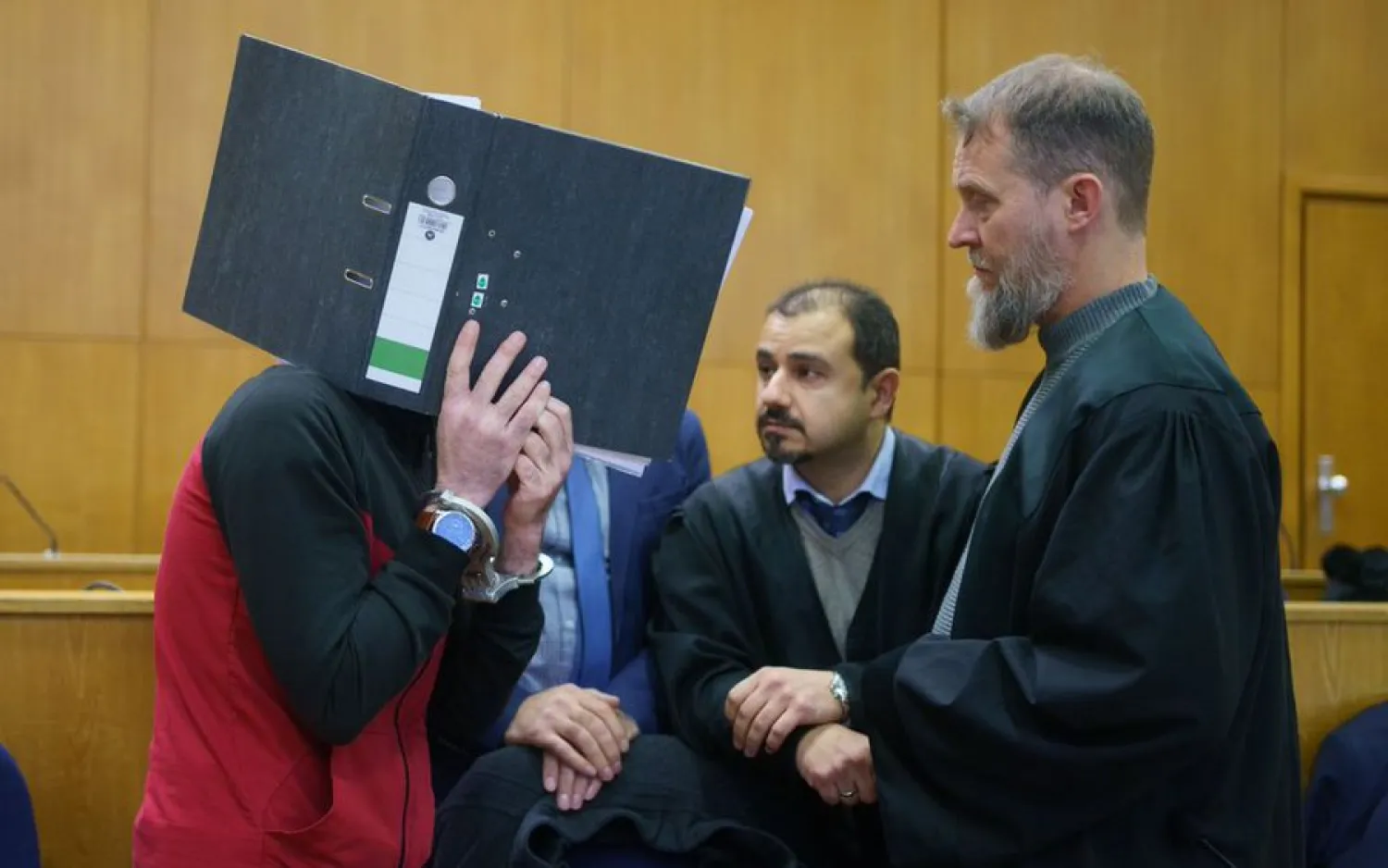A man was sentenced to life in prison by a German court on Tuesday in a landmark trial regarding crimes committed by ISIS against the Yazidi people in Iraq.
The Frankfurt Higher Regional Court found Taha Al-J, an Iraqi native whose full name was not released for legal reasons, guilty of genocide and a war crime resulting in the death of an enslaved Yazidi girl, the German News Agency (dpa) reported.
He must also pay damages of 50,000 euros (56,391 dollars) to the girl's mother.
Presiding judge Christoph Koller said it was the world's first verdict for crimes committed by ISIS against the Yazidi minority.
During the preliminary remarks on the reasons for the verdict, the defendant slumped in the courtroom and the session was interrupted.
Al-J was found guilty of having kept and abused a Yazidi woman and her daughter as slaves between July and September 2015. To punish the 5-year-old, he tied her to a window grate in the courtyard of the property in Fallujah in sweltering heat, where the child died of thirst.
Jennifer W, Al-J's former wife, was sentenced to 10 years in prison by the Munich Higher Regional Court in October. As a witness in the trial against Al-J, she had described her former husband as violent.
Al-J himself has not commented on the accusations against him.
Judge Koller spoke of the special meaning of the term genocide as a violation of international law. "Whoever violates this law violates the law of all states in the world," dpa quoted him as saying.
Therefore, even if neither the victim nor the perpetrator were German citizens and the crime had taken place outside Germany's borders, the Frankfurt court could pronounce justice.
Koller went into detail about the ideology of ISIS and the crimes against the Yazidis, about the enslavement of Yazidi women and girls, about rapes - which had been commonplace - and about the slave trade.
Al-J had shared the ideology, aimed at the destruction of the Yazidis, the court found.
Addressing the mother of the dead girl, Koller thanked the slender, stooped woman for testifying on a total of seven trial days. All those involved in the trial had been "deeply moved" by her account, he said. "We wish that you succeed in bearing your suffering and that you find peace," he said.
There was no exchange of glances between the mother, identified as Nora B, and Al-J during the pronouncement of the verdict.
Nora B, who according to the court still suffers severely from her experiences and requires psychological care, kept her eyes fixed on the ground. Al-J took notes and listened intently to his interpreters.
Al-J had accepted responsibility for the death of the child, but had not intended for her to die, the court stated in its verdict. He had tried to give the unconscious girl water and had taken her to a hospital.
Tuesday's verdict is not final. Immediately after the verdict was announced, the defense announced its intention to appeal.
A lawyer for Al-J spoke of a "very harsh sentence," adding, "We have the impression that our client has been sentenced vicariously for the atrocities of ISIS."
"Today's verdict has a strong signal effect beyond the individual case," the representative of the Office of the Attorney General of Germany stressed. "It is the first judgement in the world to establish that ISIS’ actions against members of the Yazidi religion amounted to genocide."
He said it was a warning to perpetrators of the most serious crimes under international law "that they can be held accountable - no matter where they are."









